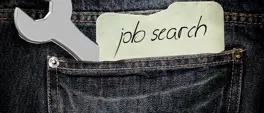How to tell real images from AI-created fake ones
Tasleem Gierdien
23 August 2024 | 7:08It won't matter how good AI gets, there are things you can do to check the authenticity of any content you consume, says tech analyst Grant Hinds.
Mitch Matanyana speaks to tech enthusiast Grant Hinds about telling the difference between a real image and a digitally altered one using artificial intelligence (AI).
AI has been around as long as computers, and it's not going anywhere, says Hinds.
Hinds believes we shouldn't fear AI, and that you can tell real images from fake ones.
"AI is nothing new. We've had it since we've had computers. But what is new is now is that there are billions and billions of data points for artificial intelligence to flourish using information from every internet user and the advancement of algorithms to compose emails, recompose images and videos, and even create images from nothing."
- Grant Hinds, Tech analyst
"It's very very difficult to see if something is digitally altered or not... and big cornerstones with how we communicate to each other are media literacy and comprehension."
- Grant Hinds, Tech analyst
Hinds explains our biases and beliefs inform how we interpret content. Social scientists refer to this as 'cognitive biases'. Examining and questioning these beliefs while consuming content is important to decipher real from fake posts.
"We all have our own biases based on our beliefs. So, when you look at information, you look at it through that biased lens... things agree with your bias and you don't question that."
- Grant Hinds, Tech analyst
Generally, question everything and ask what the author's intention is, says Hinds.
"We should be questioning everything, checking our biases and always questioning... What is the intention of the person creating this media?"
- Grant Hinds, Tech analyst
As a general rule, we shouldn't just consume content and believe it.
We should research, ask questions and think about the content we are consuming, adds Hinds.
You can ask questions like:
- Why did the author choose to post that?
- Why are headlines written in a certain way?
- Why did the author use one image over another?
- How are things being framed?
If we pause to think and question, AI doesn't stand a chance against comprehension, believes Hinds.
"We need to be careful about what we are consuming, and then reframe how we consume things and be aware of our own biases and what the intention of the person is making it... and then it won't matter how good AI gets with media... how we digest that media is the most important part."
- Grant Hinds, Tech analyst
Scroll up to the audio player to listen to the full conversation.
Get the whole picture 💡
Take a look at the topic timeline for all related articles.















